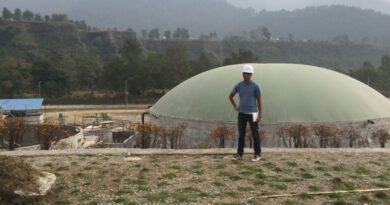IIT Guwahati creates cleaner biofuels from methane, carbon dioxide
Under the new ‘breakthrough’ process, a team of researchers have converted methane and carbon dioxide into cleaner biofuels by harnessing the capabilities of “methanotrophic bacteria.”

A team of researchers at IIT Guwahati have invented a groundbreaking biological process under which they have converted methane and carbon dioxide into cleaner biofuels that could revolutionise the decarbonisation quest of the mankind. By harnessing the capabilities of “methanotrophic bacteria,” the method provides a sustainable approach to energy production and climate change mitigation.
The IIT Guwahati study was published in ‘Fuel’ which is a journal by Elsevier and it underscores the critical impact of methane on global warming, noting that it is 27 to 30 times more potent than carbon dioxide as a greenhouse gas.
“This research is a breakthrough as it demonstrates that bio-methanol, derived from bacteria feeding on methane and carbon dioxide, can be a viable alternative to fossil fuels. Unlike conventional biofuels that rely on crops and create competition with food production, our method uses greenhouse gases, avoiding the ‘food vs. fuel’ issue. It is an environmentally and economically viable solution, utilising inexpensive resources while contributing to emissions reduction,” said Prof Debasish Das, Dept. of Biosciences and Bioengineering, IIT Guwahati.
Existing chemical methods for converting methane and CO2 are impeded by high energy demands, excessive costs, and the production of toxic by-products. To overcome these hurdles, IIT Guwahati researchers devised a biological process employing methanotrophic bacteria to convert methane and carbon dioxide into bio-methanol under mild conditions. This innovative approach eliminates the need for expensive catalysts and avoids toxic by-products, making it significantly more energy-efficient than traditional chemical processes.
Significant Reduction in Emissions
The research demonstrated an 87% reduction in harmful emissions, including carbon monoxide, hydrocarbons, hydrogen sulfide, and smoke. By transforming greenhouse gases into sustainable and cleaner fuel source, this advancement represents a crucial step in reducing environmental harm while providing renewable energy alternatives.
Beyond its environmental advantages, bio-methanol has significant industrial applications. It can act as a precursor in the production of chemicals like formaldehyde and acetic acid, making it a versatile solution for various manufacturing industries.
“The biological conversion of methane and carbon dioxide into bio-methanol has the potential to decarbonize industries such as oil and gas, refineries, and chemical manufacturing,” Professor Das stated.




